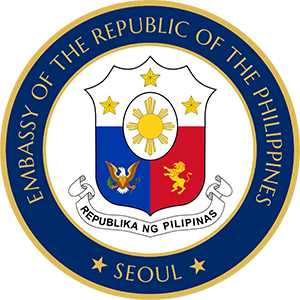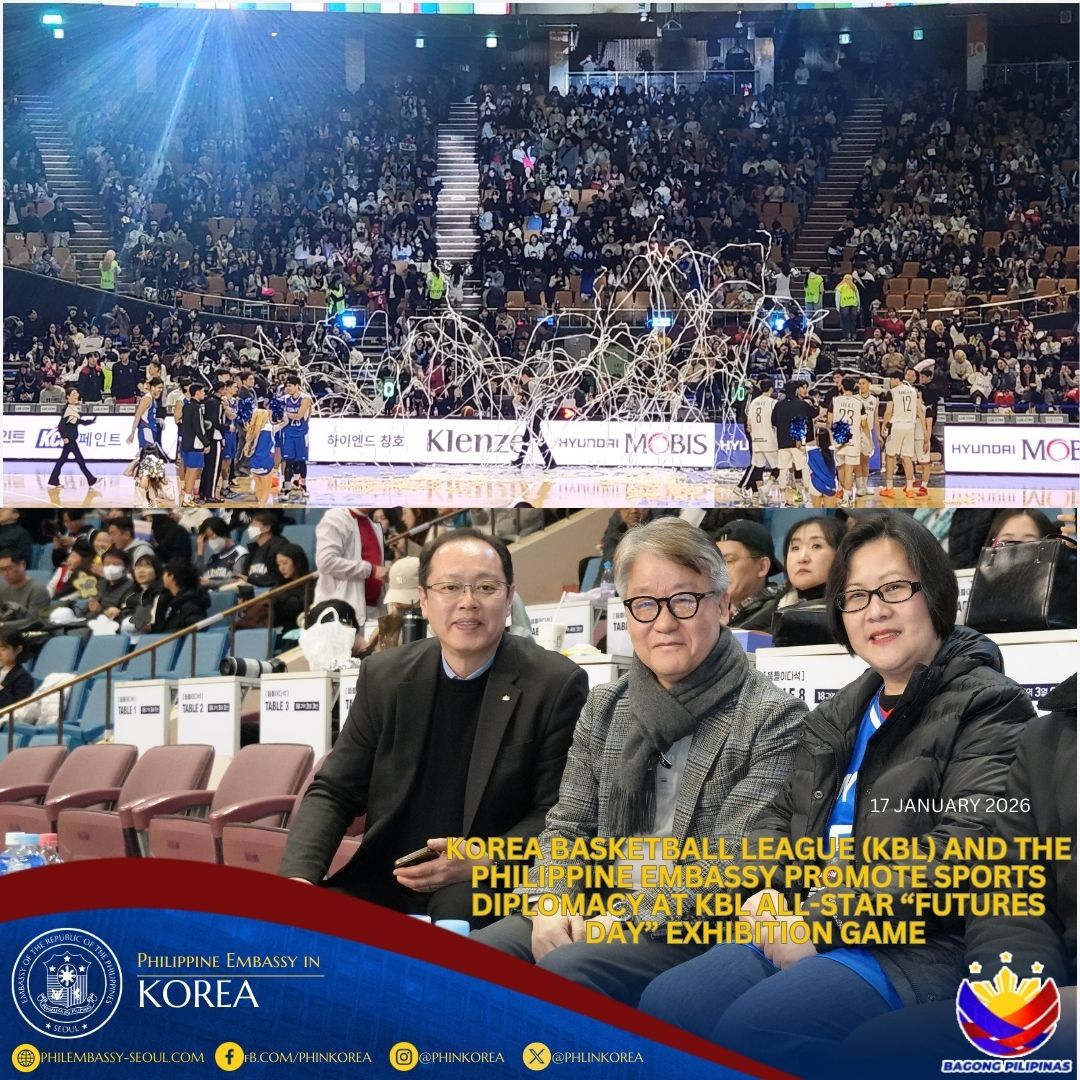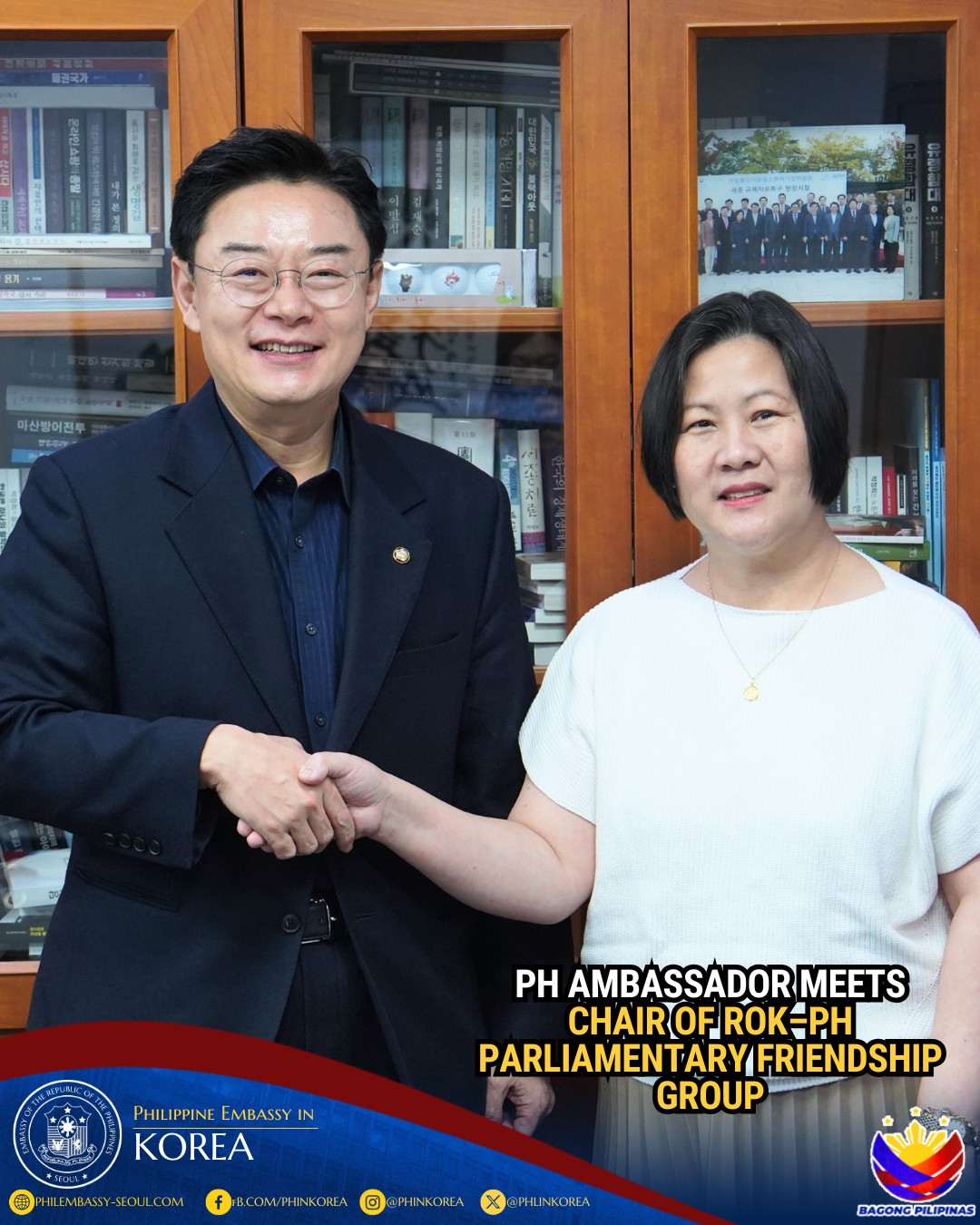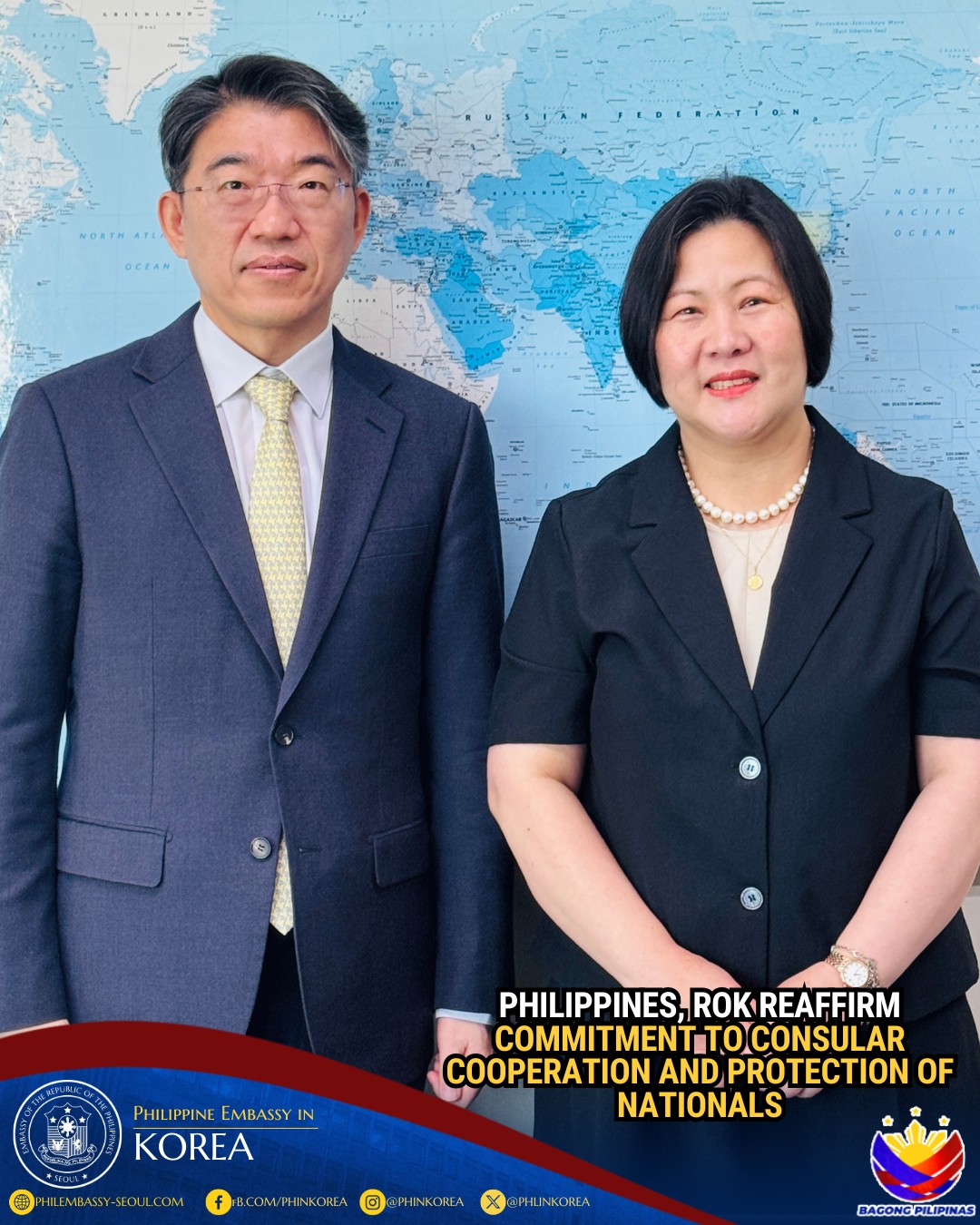Ahead of 60th Anniversary, Philippine Embassy Conducts Lecture on RP-ROK Relations
26 February 2009 – Philippine Ambassador to Seoul Luis T. Cruz reported to the Department that, in preparation for the 60th anniversary of the establishment of diplomatic relations between the Philippines and South Korea on March 3, he conducted a lecture on the two countries’ bilateral relations to approximately 100 representatives from various Korean organizations, embassies and Filipino groups at the Hamilton Hotel in Seoul.
Entitled “Philippines-Korea Friendship Year: Celebrating 60 Years of Partnership,†the breakfast lecture focused on the development of bilateral ties between the two countries, their potential direction, and the activities that the Philippine Embassy would undertake to celebrate the milestone this year.“A sturdy alliance that had military cooperation as a backdrop in its incipient stages is now blessed by an active collaboration in a number of fields including political-security, economic, socio-cultural, and development cooperation,†said Amb. Cruz.
“Philippines-Korea relations are vibrant, dynamic, and mutually beneficial… In both good times and bad, our countries have stood by and provided invaluable support to each other,†he added.
Bilateral relations between the two countries started on March 3, 1949 when the Philippines became the fifth country to recognize the newly established Republic of Korea, which was inaugurated six months earlier on August 15, 1948.
With the outbreak of the Korean War a year later, the Philippines joined a 16-nation coalition under the auspices of the United Nations Command (UNC) to help South Korea defend itself from the invasion of the communist North. The Philippine Expeditionary Force to Korea landed in Busan on September 19, 1950 and became the third UNC ground combat unit to extend military assistance after the United States and the United Kingdom.
Among those who took part in the war was former Philippine President Fidel V. Ramos.
Current relations now encompass a wide area of cooperation. According to early estimates by the Korea International Trade Association, bilateral trade from January to November 2008 reached US$7.67 billion with RP exports at $2.95 billion and ROK exports at $4.72 billion. South Korea is a consistent top trading partner of the Philippines and source of Foreign Direct Investments.
In 2008, around 611,000 Koreans visited the Philippines, making South Korea the Philippines’ top source of tourist arrivals for three years running. South Korea now accounts for 19% of the total RP inbound followed by U.S. with 18% and Japan with 11%. South Korea is likewise the country’s top source of foreign students and retirees.
“Our partnership has encompassed so many areas in both bilateral and multilateral fronts that the only way to move forward is to further deepen and widen our cooperation,†explained Amb. Cruz.
“This forward-looking approach is what we also hope to capture in the 60th anniversary of our relations: a close friendship buoyed by history and embraced by potential,†he concluded.
Among the activities in South Korea that the Philippine Embassy would spearhead this year are the launching of the Philippines-Korea Commemorative Stamps on March 3; the launching of “The Forgotten War,†a film about the Filipino soldiers who were deployed to South Korea during the Korean War, on April 14; the unveiling of the Philippine marker at the UN Memorial Cemetery in Busan on May 28; and the “One Philippines†event on May 30-31, which will convert the plaza in front of the Seoul City Hall into a grand complex exhibiting Philippine culture, trade, history and relations with South Korea.
The lecture was organized by the Institute for East Asia Peace Studies, an academe-led organization that has conducted past seminars on pressing international issues, such as South Korea’s territorial disputes with a neighboring country.
Approximately 100,000 Koreans live in the Philippines while around 60,000 Filipinos reside in South Korea as students, workers, missionaries or spouses of Korean nationals.



 January 21, 2026
January 21, 2026
 January 13, 2026
January 13, 2026
 January 12, 2026
January 12, 2026
